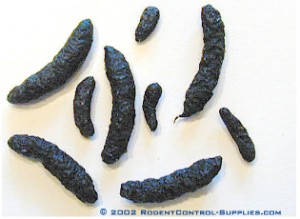On a cloudy afternoon in September, Chicago health inspector Charity Okoro arrived at Taste of Peru and began pointing out problems.
"She comes into the restaurant really mad, really screaming," recounted co-owner Cesar Izquierdo, according to city documents. He said she accused the restaurant of a handful of violations including cross-contamination for leaving an open can of beer, used for cooking, next to an uncut avocado.
Okoro issued a ticket for about $500 worth of fines but, Izquierdo said, she changed her tone when she learned that he suffers from back problems.
"Right away she stopped screaming, she stopped everything, you know, she stopped the inspection," .jpg) he told city officials. He said she assured him she could "fix you up."
he told city officials. He said she assured him she could "fix you up."
The very next day Okoro was back. But this time as a vitamin saleswoman.
Izquierdo bought $391 worth of Nutrilite vitamins, according to records. "I was a little intimidated," Izquierdo recalled. "This was the inspector selling them."
Izquierdo and his wife, Julie, said that after the sale was complete the inspector told them the date of their upcoming reinspection and assured them that everything would be fine. When Okoro arrived on the promised date, she didn’t come into the kitchen but issued them a passing grade nonetheless, said Julie Izquierdo.
The Tribune found three other Rogers Park restaurants where owners say Okoro peddled her vitamins. Yet neither the Izquierdos nor any of those owners complained to the city’s Department of Public Health.
Finally, in November, after much deliberation and loss of sleep, Julie Izquierdo decided to report the incident — along with supporting documents — to an administrative law judge when she went to contest the fines. The administrative judge reversed the fines against Taste of Peru, and a city investigation then led to Okoro’s resignation.
The Chicago Tribune reports it’s a sequence of events that lays plain the difficult relationship between the city’s restaurants and its regulators. The city says it welcomes complaints from restaurant owners, whom a Health Department spokeswoman called "our eyes and ears."
But in the course of its investigation, the city did not reach out to any of the restaurants where Okoro tried to sell her vitamins. Meanwhile, some restaurant owners said they assume any concerns they express to the city are likely to fall on deaf ears or, worse, be used against them.
"There is (an assumption) in food business that they will suffer terrible consequences if they step forward," said Logan Square Kitchen owner Zina Murray, who launched a petition last summer to change Health .jpg) Department policies but said few restaurants would sign it for fear of angering the city.
Department policies but said few restaurants would sign it for fear of angering the city.
Inspectors, in particular, hold great power in the restaurant world because a bad report or temporary shutdown can cost owners thousands of dollars and jeopardize business.
 Health Department.
Health Department.

.jpg) people, federal prosecutors charged.
people, federal prosecutors charged..jpg) he told city officials. He said she assured him she could "fix you up."
he told city officials. He said she assured him she could "fix you up.".jpg) Department policies but said few restaurants would sign it for fear of angering the city.
Department policies but said few restaurants would sign it for fear of angering the city. Department of Public Health official confirmed this afternoon.
Department of Public Health official confirmed this afternoon.
(2).png) simply inspect for things is because it takes too long."
simply inspect for things is because it takes too long.".png) inspection grades keeps everyone awake
inspection grades keeps everyone awake.jpg) public, or all Americans or all Canadian women is only talking about themselves (I also tell the kids to keep your stick on the ice and don’t take wooden nickels).
public, or all Americans or all Canadian women is only talking about themselves (I also tell the kids to keep your stick on the ice and don’t take wooden nickels). sales bakery in Lincolnwood, just outside Chicago.
sales bakery in Lincolnwood, just outside Chicago. 
 IDPH officials say alfalfa sprout producers and suppliers are being investigated, and produce testing is ongoing.
IDPH officials say alfalfa sprout producers and suppliers are being investigated, and produce testing is ongoing.